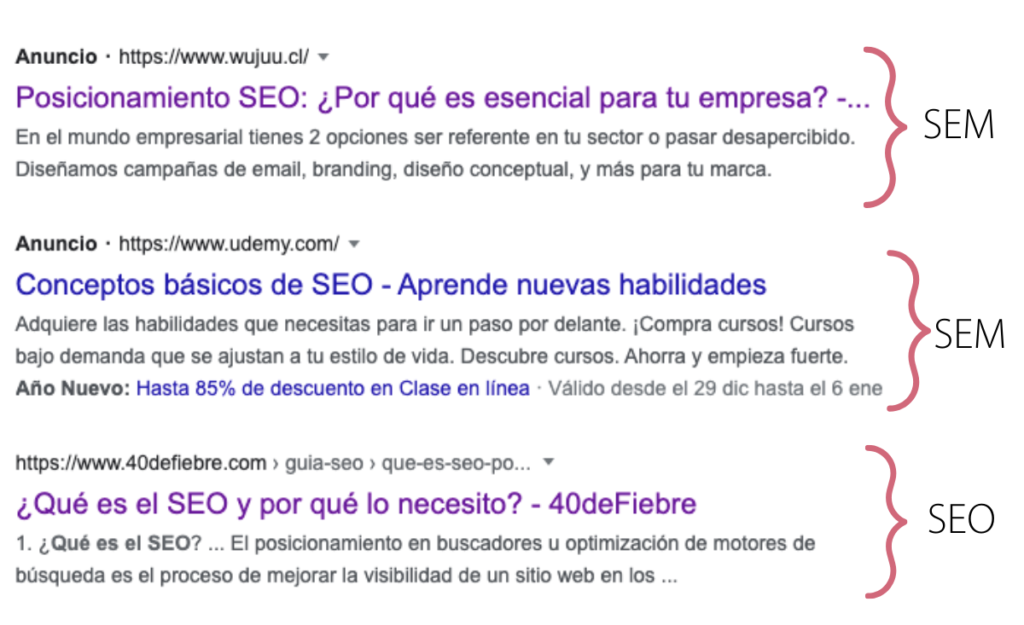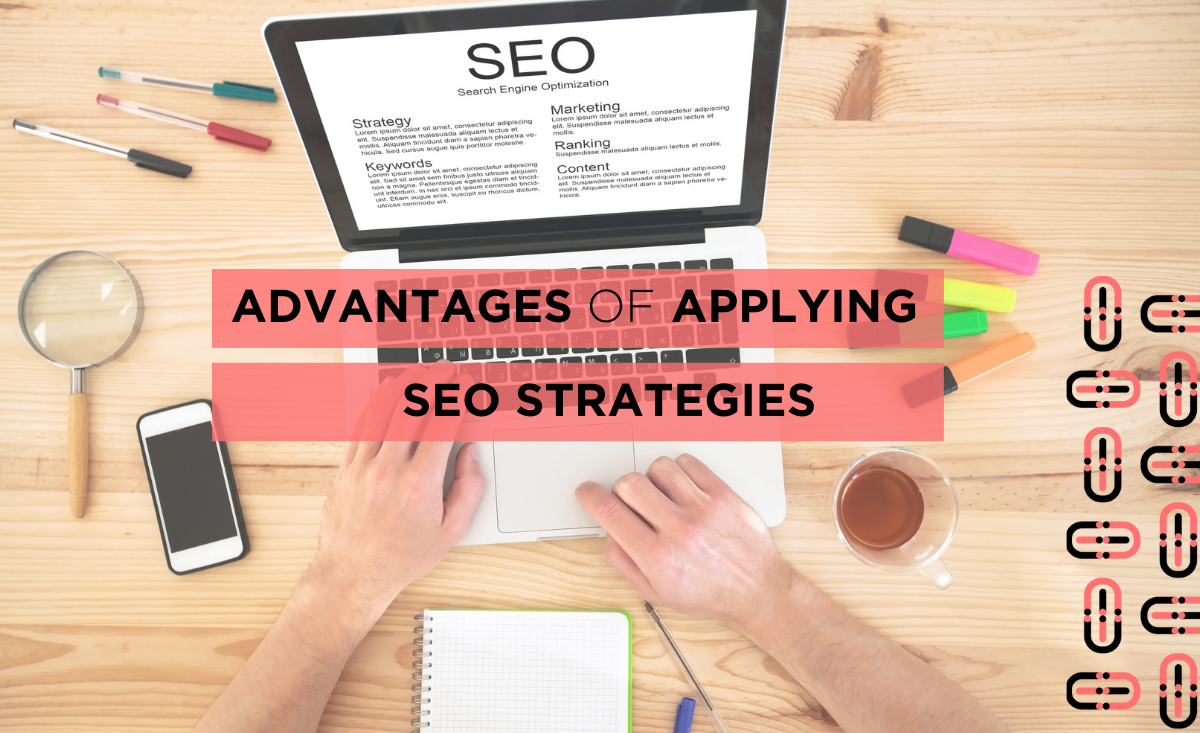With the exponential growth that the Internet has had in the last decades, one of the most frequent doubts, according to our experience, is what is SEO? To be honest, SEO is such a broad concept, we know trying to understand it can seem overwhelming. But don’t panic! Reading this basic guide will be the first step to becoming an SEO expert 👇
Let’s start with the basics… What is SEO?
The simple answer to this complex question is this: SEO is an acronym for “Search Engine Optimization”. What does it mean? It’s finding the best way to optimize your web page on search engines to improve your site’s visibility on them.
But in practice, SEO is MUCH more than that. SEO considers multiple variables, from the keywords you use to the multimedia material that accompanies your text. But ultimately, it is the set of strategies you apply to your website, always with the goal of improving and boosting your organic positioning in search results.
What does it mean that SEO is organic?
As you read this article, you will realize that we will repeat the word “organic” a lot. In the field of digital marketing, when we talk about “organic growth”, we are referring to the growth we get naturally, without an advertising payment boosting the content.
And how can we achieve this longed-for growth?
By delivering valuable content and constantly creating communications strategies to position yourself at the top of the search results.
If SEO is organic positioning, what is SEM? 🤔
If SEO refers to the strategies to position our website organically in search engines, why is it that when you do a search on Google -or any other search engine-, there are some ads that appear first? These ads are what we know as SEM.
Unlike SEO, when we talk about SEM we refer to paying for search engine positioning, as its acronym explains: “Search Engine Marketing” 👀. Therefore, every time you do a search on Google and an “Ad” sign appears in the first positions, it means that someone is using SEM strategies.
On the contrary, all those links that do not indicate the Ad, will be those whose positioning is 100% organic, which means, through SEO. Does this mean that a SEO strategy is better than a SEM one? Not necessarily. The recommendation will always be to look for the optimal way to apply both SEO and SEM in your digital marketing strategy to obtain better results.

What are the main benefits of implementing SEO?
An absolute truth is that a good SEO positioning has a direct impact on the success of your communications strategy. Why? If you do it right, you will not only get more visits to your website, but also quality traffic.
This is because Google will have previously done the work of connecting your content with users who are really interested in it. The truth is that implementing an SEO strategy on your website has many advantages, but here are 5 of the most important ones:
1. Increased business visibility
Did you know that 75% of people who do a search on Google, don’t make it past the first page of results? 🤯 So, if you work hard and manage to develop a successful SEO strategy, this will allow you to rank in those desired first search results! That’s going to help you get more visibility for your website.
2. Quality web traffic
A good SEO strategy will help you rank better in search engines, which will result in more clicks and therefore, more visits to your website. Now, the special thing about these visits is that they are quality traffic. What does this mean? It means that the people who finally visit your website are users who are interested in your content. Thus, those users who visit your page have a greater chance of converting into a purchase💸.
3. Greater credibility and trust
The search engines ranking of your website depends on so many factors. The fact they rank you in the top search results is an indication that you are doing something right, and that they trust your website. A good positioning will make users trust your website and believe in the content you are delivering.
4. Provides content of value
Developing your search engine optimization strategy involves doing a previous keyword research. Keywords are those words or phrases related to your business that are most searched for by users. By doing this research, you will basically find out what exactly people are searching for in Google. What good does this do you? Well, by knowing the most common doubts among users, you will be able to create content that answers their questions, thus providing value among them.
5. Generate more leads and sales
Applying an SEO strategy can lead to a greater number of potential customers and, therefore, higher sales. And all the benefits we have mentioned above finally converge at this point. By having greater visibility, the number of clicks on your website will increase and, as these visits are of higher quality, it is more likely that this traffic will be potential customers and possible sales.
So now you know! Incorporating SEO into your marketing strategy can benefit you in many ways. In this article we tell you what SEO is, but there’s plenty more to go on. And if you already have a website and don’t know where to start, Hubspot has a free guide for you to do a basic SEO audit and start optimizing your website now.
